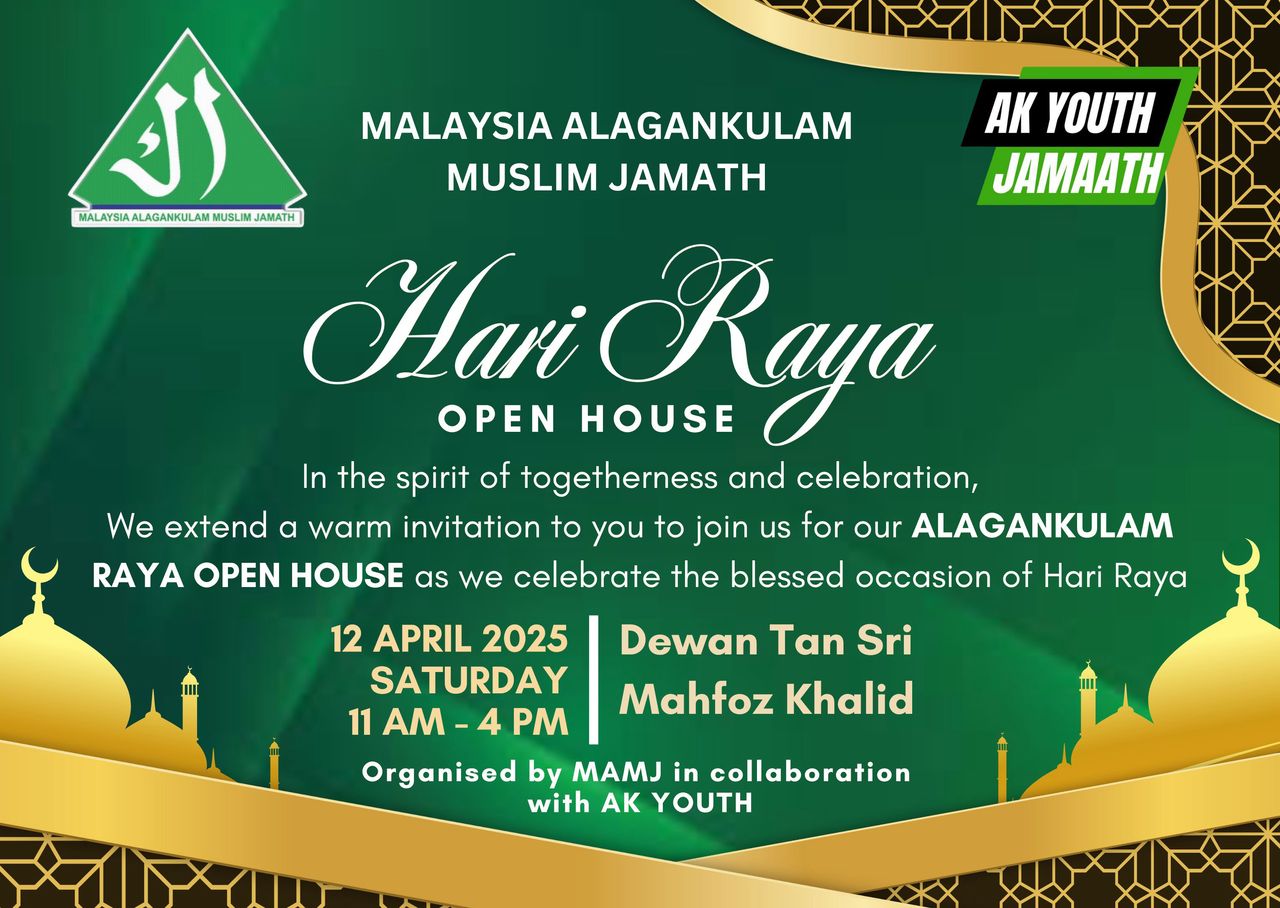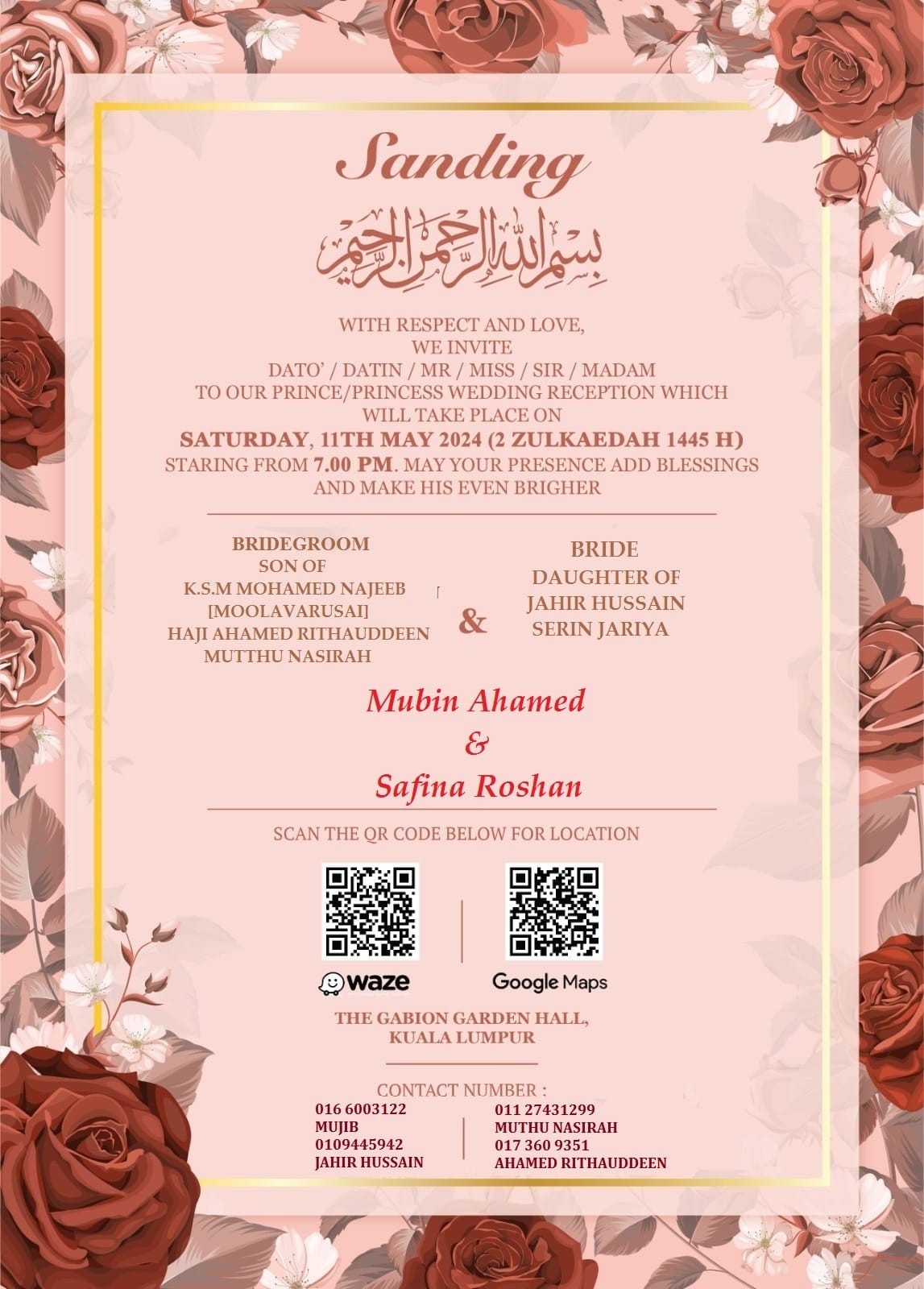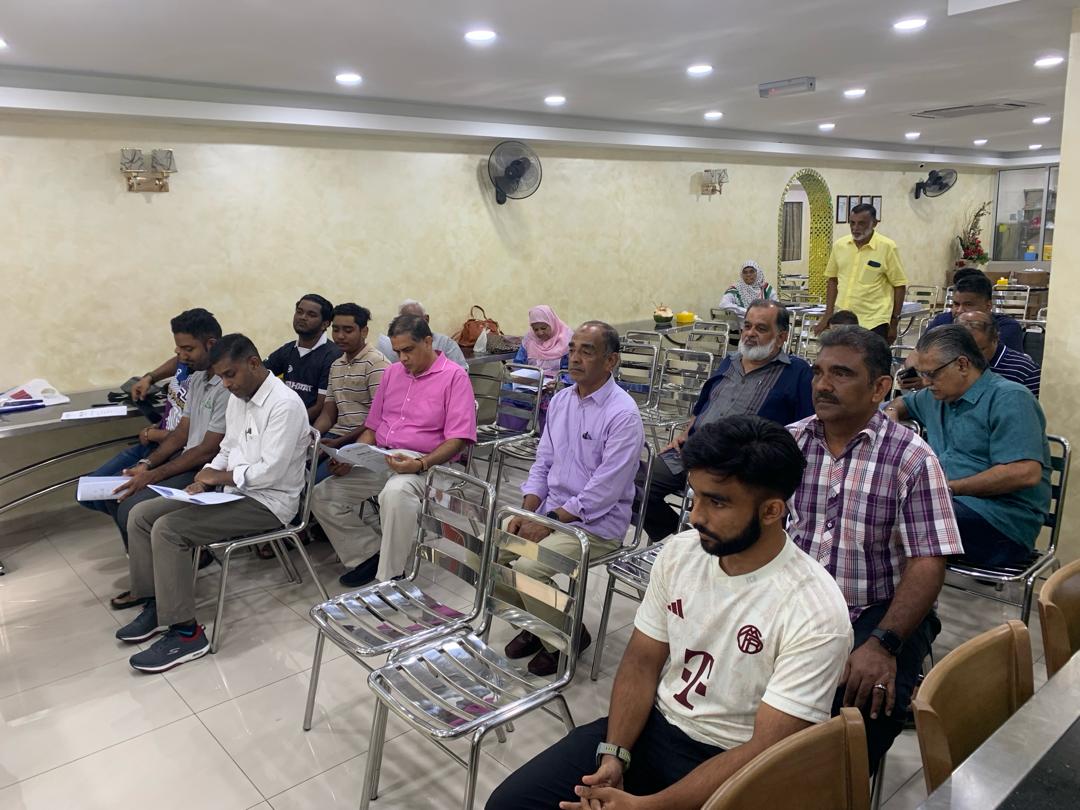ZAKAT DISTRIBUTION
- WEDDINGS & EVENTS
- ZAKAT DISTRIBUTION
ZAKAT DISTRIBUTION
Alhamdu Lillahi-lazi Ihdaina lil-Islam.
There are eight groups of people on whom Zakat should be spent, as mentioned in Al-Quran:
“The alms are only for the Fuqaraa (the poor), and the Masakeen (the needy) and those employed to collect (the funds); and to attract the hearts of those who have been inclined (towards Islam); and to free the captives; and for those in debt; and for Allah’s Cause, and for the wayfarer (a traveler who is cut off from everything); a duty imposed by Allah. And Allah is All-Knower, All-Wise.” [Al-Quran 9:60]
1. Fuqaraa: Those who own property in excess of basic necessities but below the value ofNisab
2. Masakeen: Persons of extreme poverty who possess no wealth whatsoever
3. Aamileen: (Zakat collector) According to Scholars, those persons who are appointed by an Islamic Government to collect Zakat. It is not necessary that this be a needy person
4. Muallafatul Quloob: Those poor and needy persons who are given Zakat with the intentions of solidifying their hearts because they maybe recently converted to Islam or to bring them closer to Islam
5. Ar-Riqaab: slaves whose masters have agreed to set them free on a payment of a fixed amount, Zakat may be used to purchase their freedom
6. Al-Ghaarimeen: A person whose debts exceed his assets and his net assets (afterdeducting his liabilities) is below the Nisab limit
7. Fi Sabeelillah: Those who are away from home in the path of Allah :To finance a Jihad effort in the path of Allah, not for Jihad for other reasons. The fighter (mujahid) will be given as salary what will be enough for him. If he needs to buy arms or some other supplies related to the war effort, Zakat money should be used provided the effort is to raise the banner of Islam.
8. Ibnus-Sabeel: A traveler, who, whilst wealthy at his residence, is stranded and in need of financial assistance.
The expression “in the cause of Allah” or fi Sabil Allah was generally interpreted “Jihad fi Sabil Allah” and so many jurists restricted this Zakah expense for this purpose.
Muslim jurists also say that in the Qur’an Allah used the word “Lil fuqara’ wa Al-masakin or ‘for the poor and the needy’ and the ‘lam’ or (for)” here means ‘tamlik’ or possession. Thus they interpret the above verse to mean that the poor and needy should be made owners of this money or Tamlik Al-Zakah.
Since in public and social welfare projects no one becomes the owner, so, according to their interpretation the Zakah should not be used for this purpose. Thus you will find in the books of Fiqh statements emphasizing that the money should not be used to build the Masajid, schools, hospitals, hostels etc. because this money belong to poor and it should be given to them. There are some jurists who still hold this strict opinion concerning Zakah.
However, there are a number of jurists of this century, such as Sheikh Muhammad ‘Abduh, Rashid Rida, Maulana Mawdudi, Amin Ahsan Islahi, Yusuf Al-Qaradawi and some Fatwa organizations in Kuwait and Egypt, they are of the opinion that the phrase ‘in the cause of Allah’ covers a broad category. It is a general term and it should be applied in all those situations where there is a need to serve Islam and Muslims.
Those scholars consider it permissible to use the Zakah money to finance the Da’wah and public welfare programs. They say that the expression ‘for the poor and needy’ can also mean ‘for the benefit of the poor and needy’.
The modern jurists also argue that in the past Muslim governments used to build Mosques, schools and used to finance public welfare projects. Now many governments are negligent in this matter. Many Muslims are living in areas where there are no Muslim governments.
Furthermore the financial needs of the people have become so enormous and diverse that earlier rules and restrictions cannot be fully applied and may not be very useful in every place.
In his famous book Fiqh Az-Zakah, Sheikh Yusuf Al-Qaradawi, has thoroughly discussed this subject. His Fatwa is that in non-Muslim countries it is permissible to use Zakah funds to build the Masajid, Schools and hospitals.
It is the concept of ‘fi Sabil Allah’ and helping the Islamic cause in many lands where it has made it possible to establish Islamic institutions and Mosques.
Zakah is basically for the poor and needy and most of it should be used to take care of their needs. I believe that for the Mosque constructions Muslims should make extra charity and should give from funds other than Zakah. However, it is not forbidden for Muslims to give their Zakah money for the building of Mosques and schools, especially in non-Muslim countries.
“”Based on the literature review on zakat distribution of Pusat Zakat Selangor, in Islamic perspective, it can be summarized that the applications of zakat distribution in this current situation are as follow:
Table 1 The Application of each asnaf in this current situation
| Asnaf | Applications |
| Fakir and Miskin | 1). Capital gift for the fakir or miskin who has ability or skill, such as carpenter tools for carpenter, farm yield and plant seed for farmer, money for merchants, etc. 2). Monthly or annual fund for unable Moslems, such senior citizen, paralyzed man, yatim piatu kids 3). To build house for unable Moslems 4). Scholarship for Moslems students whose parents do not able to finance their education |
| Amil | To pay the wages of ones who perform all the zakat matters such as zakat collector, zakat distributor, zakat treasury, zakat warehouse keeper, etc. |
| Muallaf | 1). Funding for muallaf foundation 2). To build mosque for muallaf who live in the kafir region or kafir country 3). Scholarship for Moslem students who study in un-Islamic school or in kafir region 4). Humanity gift for Moslems who threatened by Christianity or others religion program such as Moslems who live in minus or poor region 5). Humanity gift for Moslems in conflict area such as African Moslems or Iraqi Moslems |
| Riqob | 1) To release the Moslem prisoners who are arrested because of their da’wah activity 2) To release the Moslem women employee who are under pressure of their employer 3) To finance the jihad of Moslems to get their independency from kafir ruler/country |
| Gharim | 1). To pay the liabilities of Moslems who are trapped in their obligation for their basic need 2). Humanity gift for Moslems who become the victim of disaster such as fire, flood, robbery, etc |
| Fisabilillah | 1). To finance the Islamic jihad against kafir who fight them such Moslem in Ambon Indonesia or Palestine 2). To finance the Islamic mass media such as Islamic newspaper, Islamic magazine, Islamic television and other Islamic publication media 3). Scholarship for Moslem students who have good performance |
| Ibnu Sabil | 1). Scholarship for Moslem students who study in other countries 2). To finance the elimination of beggar or homeless person 3). To help the discarded kids 4). To help a merchant whose merchandise are borrowed by others and he cannot collect it back 5). To help Moslems who are chased away from their country since they keep their iman |
……………………………………………………………………………………………………
The Prophet said: ‘Charity is a necessity for every Muslim. ‘ He was asked: ‘What if a person has nothing?’ The Prophet replied: ‘He should work with his own hands for his benefit and then give something out of such earnings in charity.’ The Companions asked: ‘What if he is not able to work?’ The Prophet said: ‘He should help poor and needy persons.’ The Companions further asked ‘What if he cannot do even that?’ The Prophet said ‘He should urge others to do good.’ The Companions said ‘What if he lacks that also?’ The Prophet said ‘He should check himself from doing evil. That is also charity.’
…………………………………………………………………………………..
Wallaahu a’lam
Categories
Events
Blog Archieve
- [+] 2024 (2)
- [+] 2023 (2)
- [+] 2021 (2)
- [+] 2020 (8)
- [+] 2019 (5)
- [+] 2018 (5)
- [+] 2017 (4)
- [+] 2016 (16)
- [+] 2015 (42)
- [+] 2014 (36)
- [+] 2013 (15)
- [+] 2012 (19)
-
[+]
2011 (61)
- [+] January (7)
- [+] February (7)
- [+] March (4)
- [+] April (1)
- [+] May (5)
- [+] June (1)
- [+]
July
(8)
- Kem Ibadah Wanita Pra-Ramadhan
- Invitation to Majlis Berbuka Puasa MAMJ
- Majlis Berbuka Puasa MAMJ 2011
- Ramadhan 2011 Fund
- Another Achievement by Our Past President Haji Mohamed Ismail Sharif – He is Among the Top 50 Islamic Finance Lawyers Globally. Alhamdulillah
- பட்டமளிப்பு விழா
- Majlis Buka Puasa Amal 2011 – Anjuran Indiamuslim.org (IM.ORG) Dengan Usahasama Muslim Manaver Sanggam (MMS)
- Chess tournament
- [+]
August
(9)
- ALL RELIGIONS SAY ‘ONE’ – Part 2 (In Hinduism, Sikhism, Christianity, Judaism, Confucianism & Buddhism)
- ALL RELIGIONS SAY ‘ONE’ – Introduction
- PENYERTAAN PAS DALAM PERARAKAN BERSIH 2.0
- BAN ON RECITAL OF THE QURAN OVER LOUDSPEAKERS IN PENANG
- MY VIEW ON MARISA DEMORI’S LETTER IN NEW STRAITS TIMES
- THE ISSUE OF MURTAD (APOSTASY)
- ALAGAI PATTAMALIPPU VIZHA
- THANK YOU MAMJ MEMBERS
- RAMADHAN MUBARAKH!!!!!
- [+] September (5)
- [+] Octobar (4)
- [+] November (3)
- [+] December (7)
-
[+]
2010 (160)
- [+] January (8)
- [+] February (3)
- [+] March (1)
- [+] April (3)
- [+] June (1)
- [+]
July
(15)
- ஜோதிடம் , சகுனம் பார்த்தல் : இஸ்லாமியக் கண்ணோட்டம்
- OUR PRESIDENT AND DATIN VISIT DR.APJ ABDUL KALAM
- உம்மத்தின் வழிமுறை
- IBUBAPA
- The Key to Raising Righteous and Successful Children
- ங்கள், செலவழிக்கும் முன் சம்பாதியுங்கள்
- A New Domain Extension “.CO” Launched
- தாம்பத்திய உறவு
- கமலாதாஸ் – ஸுரையா :
- உறவுக்கு அப்பால் தாய் தந்தை
- PERIYAR DASAN’S SPEECH AT JEDDAH:PHOTOS
- பெண்ணுரிமையும்! இன்றைய பெண்களும்!!
- FAMILY VALUES : THE MOTHER
- Invitation to Program Rapat 1Malaysia
- Just See What British Thought of India and How They Managed to Rule Us
- [+]
August
(19)
- ALLAH THE GREATEST
- RAMADHAN : MONTH OF PATIENCE
- My Mother, My Best Friend
- RAMADHAN : MONTH OF PATIENCE
- Enriching the Community
- ZAKAT DISTRIBUTION
- 6-Story Jesus Statue Struck By Lightning!!!
- இல்லறமே நல்லறம்!!!
- வரதட்சணை : பூனைக்கு மணி கட்டுவது யார்?
- Dato’ Haji Thasleem and Datin Dr.Yazmeen with Dr. APJ Abdul Kalam
- அமைதியை இழந்து தவிக்கும் அமெரிக்க வீரர்கள்!
- WE ARE THE HONORABLE WOMEN OF ISLAM!
- Recent Archaeological find by Aramco During Gas Exploration in Saudi Arabia- Subhanallah
- ஒரு சகோதரியின் உலக சாதனை !
- BELOVED AMMA & ATTHA
- எதை கொடுப்பது ? எதை எடுப்பது?
- திருமணம் என்பது ஒவ்வொரு மனிதனில் வாழ்விலும் ஒரு முக்கியமான அம்சம்.
- முஸ்லிம்களுக்கு ஏன் இவ்வளவு பெருமை என்று வியந்தேன்…
- ஏன் இஸ்லாம் — ஆமினா அசில்மி
- [+]
September
(21)
- A Police Officer Wrote This! Please Read coz may Save your Life!
- Al-Quran
- APPEAL FOR LAND BY MAMJ
- History Mystery – Interesting and Incredible
- Makkah (SubahanAllah) -Current Development
- Prophet Muhammad SAW Praised by Non-Muslim Leaders and Philosophers
- Interactive Sites on Medical Information
- Indraiya Poluthu Iniya Poluthaaga Amaiyattum
- BABRI MASJID CASE -JUDGEMENT ON 24TH.SEPTEMBER 2010
- நபி மொழிகள் !!!
- The Minor Signs of the Last Day
- அல்லாஹ்விடம் உதவி தேடுங்கள்!
- Walking Helps Keep Body and Brain Young
- NY imam says mosque fight worth the controversy
- BELOVED ATTHA : YOU ARE THE BEST
- ஒரு குத்துச்சண்டை வீரரின் அழுகை!
- Ahmedabad’s Bus System a Hit with Several Countries
- Breaking News-RAMADHAN FUND 1431H
- All for a Palm Tree in Jannah
- MAMJ President at The Orphanage in Kg.Manjoi Ipoh
- MAMJ President at Buka Puasa Organised by Tanjung Muslim Association Penang in Association with Penang Hindu Sangam and Klinik Derma Sivasanta
- [+]
Octobar
(34)
- The Human Camera
- Outstanding Animations
- Best Signpost in India
- காய்கறிகள் பழங்கள் மூலமாக இருதய அடைப்பை நீக்க முடியுமா ?
- Better to be Lion Hearted!
- Peace of Mind Tips and Advice
- சில பொன்மொழிகள்..
- India’s Rare Pictures
- Home of a Mexican Drug Lord being raided!
- What is I C E ?
- Life iN the Year 3000
- GEMS OF WISDOM
- Regular Health Mistakes
- மகிழ்ச்சியாக இருப்பதற்குக் காரணங்கள் தேவை இல்லை
- Existence of Allah
- TO ALL AMMA’S : IMPORTANCE OF BREASTFEEDING
- ஆரோக்கியமாக வாழ ..
- Brain Damaging Food and Habits
- The status of the family in Islam
- Allah looks to your Heart & Deeds
- Shine a Light and enjoy your Coffee
- Be Very Careful of Rat Urine/Droppings
- THE PAST IS GONE FOREVER!!!!
- Taxi in Dubai
- Coincidental! – Good for Your Health
- ALLAHU AKHBAR!!
- The First Medical Council in The World
- Inside Ka’bah & Airmata Rasulullah SAW
- A Muslim Student in India Fights for Her Right to Dress in Islamic Way
- The Best Person in The History of Mankind
- FABULOUS COMPILATION
- ETIQUETTE OF NAMING CHILDREN
- Islam Again in Ayodya
- Interview with British Journalist Yvonne Ridley
- [+]
November
(38)
- Suhas Gopinath from Bangaluru,WORLD’S YOUNGEST CEO
- IF YOU HAVE A WILL, YOU WILL!!!!
- DISIPLIN ANAK-ANAK!!
- BE READY!!!!!!!!!!!!!
- REMEMBER! REMEMBER! REMEMBER!
- 360 DEGREE PICTURE – THE COCKPIT OF THE AIRBUS A380
- Allah takes Your Soul When You sleep
- 16 Amazing Photos that captured the world
- Be Amazed By The Beauty Of Nature
- MAMJ Presidents Speech at Masjid Muslim India Ipoh
- A Story of Appreciation
- Mirror or 2-Way Glass? BE CAREFUL
- God’s Work
- English is a Funny Language
- Hari Raya Aidiladha Wishes
- Superb Sentences By Famous People
- Dont Be Serious, Be Sincere
- Eating Fruits The Proper Way
- MUSLIM MOROCCANS LIVEHOOD
- Tony Blair’s sister-in-law Lauren Booth converts to Islam
- Success dosen’t come within a day! – MAMJ n Alagai Makkal
- பெண்
- THE SMALLEST GIRL IN THE WORLD!!!!!
- கோபம் – வேண்டவே வேண்டாம் !!!
- FED UP OF LIFE?
- SOCIAL CLASSES IN ISLAM???
- The Charles Schulz Philosophy
- ஆசைகளை சீர்படுத்துங்கள்
- ஆசைகளை முறைப்படுத்துங்கள்
- CWG 2010 Special – PHOTOGRAPHY
- Sejda Miracle
- Wedding Dates -Avoid Clash of Dates
- New Drug in Schools? Parents Please Take Note
- DEATH SENTENCE FOR A KIDNAPPER IN YEMEN
- AMAZING TRAIN ROUTES
- RICH INDIA? POOR INDIA? DO YOU BELEIVE THIS?
- One Call (ESTAWOO = Arrange yourselves) and The Impossible Happens
- To All Parents!
- [+]
December
(17)
- 14 YEARS OLD MOHAMED SUHAIL’S ACHIEVEMENTS:
- CONGRATULATIONS TO ALL MAMJ STUDENTS WHO SUCCEEDED IN PMR
- Notification of Wedding Dates
- Benefits of Drumstick leaves ( Tamil – Murungai leaves )
- Small teaser for Alagai Makkal..Enjoy!
- Niagara Falls 99 years ago. Worth Looking At
- 4 THINGS YOU PROBABLY NEVER KNEW YOUR MOBILE PHONE COULD DO
- ALAGANKULAM BIRDS SANCTUARY
- The Goodthings of HONEY
- The Ugly Briton
- The Cucumber
- Naive, Dim-wit or Extreme?
- Worth reading!
- Unconditional Love
- Muharram Message
- Muharram Greetings
- Amazing Houses Around the World – General Knowledge for Alagai Makkal
-
[+]
2009 (20)
- [+] September (2)
- [+] Octobar (3)
- [+] November (4)
- [+]
December
(11)
- Islam and Science
- Speak more in Malay -Dr. M Tells Indian Muslim
- Annual tax filing for YA 2009 – are we ready
- Divorce?! Separated!? Why?
- Wearing hijab – Compulsion, option or willingness?
- MAMJ EXCO MEET THE MEMBERS AT SUNGAI PETANI
- DINNER AND GIFT PRESENTATION TO EXCO MEMBERS 2006 – 2009
- Newspaper Clippings from India
- Eid al-Adha and Hajj 2009
- Thoughts to Share
- 2009 MAMJ Imam Al-Ghazzali Merit Awardees
- [+] 1996 (1)
- [+] 1993 (1)
- [+] 1881 (1)
-
[+]
0 (1)
Advertisement
Newsletter Sign Up
For Latest Updates




